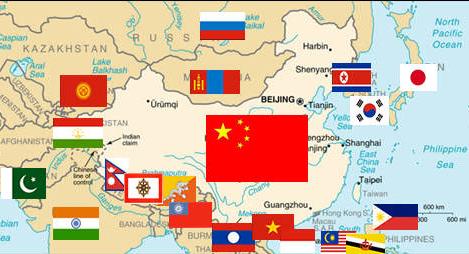Richard Javad Heydarian, Professorial Chairholder in Geopolitics, Polytechnic University of the Philippines
Sep 30, 2022
As a former U.S. colonial subject, the Philippines has retained close cultural and official ties to Washington. The new Philippine president, Ferdinand Marcos Jr., has shown that he intends to deviate from his predecessor’s distancing from the United States by rebuilding relations with the West while simultaneously drawing closer to Asian nations - including China.
Zhang Yun, Professor, School of International Relations, Nanjing University
Sep 30, 2022
China and Japan have deepened their economic interdependence, but they have a long way to go in building political trust, especially in the security realm. The two countries should get beyond the old concept that starts with military deterrence. It is no longer productive.
Lucio Blanco Pitlo III, President of Philippine Association for Chinese Studies, and Research Fellow at Asia-Pacific Pathways to Progress Foundation
Aug 10, 2022
The South China Sea has been the backdrop for so many international conflicts that few remember the Declaration of Conduct which governs activity in the testy waters. Now, 25 years later under new circumstances, a new agreement may be able to help lighten tensions in the Sea - if it can get passed.
Kathryn Neville, Masters student, Johns Hopkins University School of Advanced International Studies
Aug 02, 2022
Kathryn is a Master’s in International Relations candidate at Johns Hopkins University School of Advanced International Studies (SAIS) and former appointee at the United States Agency for International Development (USAID).
Zhang Baijia, Former Deputy Director of the Party History Research Center, CPC Central Committee
Jul 27, 2022
As an emerging power, China must cultivate a healthy national psyche, seeing not only from its own perspective but also that of others. It should do its own things well, balancing reform, development and stability. And it should work to reestablish positive relations with the U.S..

Zhao Minghao, Professor, Institute of International Studies at Fudan University, and China Forum Expert
Jun 30, 2022
Competition with the United States has become a catalyst for change in the way China deals with countries in its own neighborhood. A sophisticated approach in Asia will be required as China balances all its interactions.
Brian Wong, Assistant Professor in Philosophy and Fellow at Centre on Contemporary China and the World, HKU and Rhodes Scholar
Jun 25, 2021
Chinese President Xi Jinping announced his wish for China to take on a softer approach to the world surrounding it. That means dialling back their rhetoric and picking their non-negotiable issues wisely.
Chen Jimin, Guest Researcher, Center for Peace and Development Studies, China Association for International Friendly Contact
Jun 24, 2021
The United States does not neighbor China, but it exerts considerable influence on countries in East Asia. China hopes all will act in good faith to build an open and inclusive Asia that embraces peace, prosperity and win-win cooperation.
Zheng Yu, Professor, Chinese Academy of Social Sciences
Jan 12, 2017
The Trump administration may exert unprecedented strategic pressures on China against the background of continuous implementation of the pivot to the Asia-Pacific. But that is unlikely to boost the US economy for many reasons, and the Republicans’ realist diplomatic philosophy and Trump’s businessman’s pragmatism make it possible for reversals in the next US government’s aggressive China policies.
Brahma Chellaney, Professor, Center for Policy Research
Dec 16, 2016
Recent developments are highlighting how competition over shared water resources is a major contributory factor to the growing geopolitical discord in Asia. China’s “territorial grab” in the South China Sea has been accompanied by a quieter “freshwater grab” in transnational river basins. Reengineering trans-boundary water flows is integral to China’s strategy to employ power, control, influence, and fashion a strongly Sino-centric Asia. The upsurge of resource and territorial disputes has underscored the looming dangers. Various developments indeed are highlighting the linkage between water and peace.
Back to Top

- China-US Focus builds trust and understanding between the U.S. and China through open dialogue among thought leaders.
- Our Offerings
- Topics
- Videos
- Podcasts
- Columnists
- Research Reports
- Focus Digest
- Stay Connected
-
Thanks for signing up!
- Get the latest stories from China-US Focus weekly.